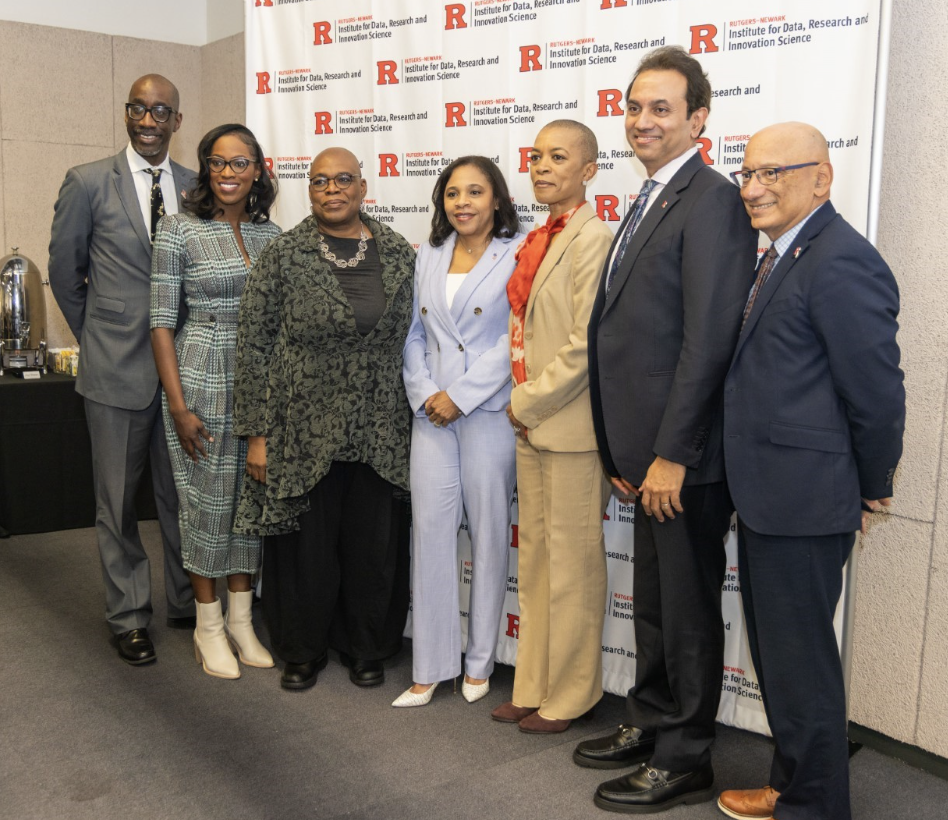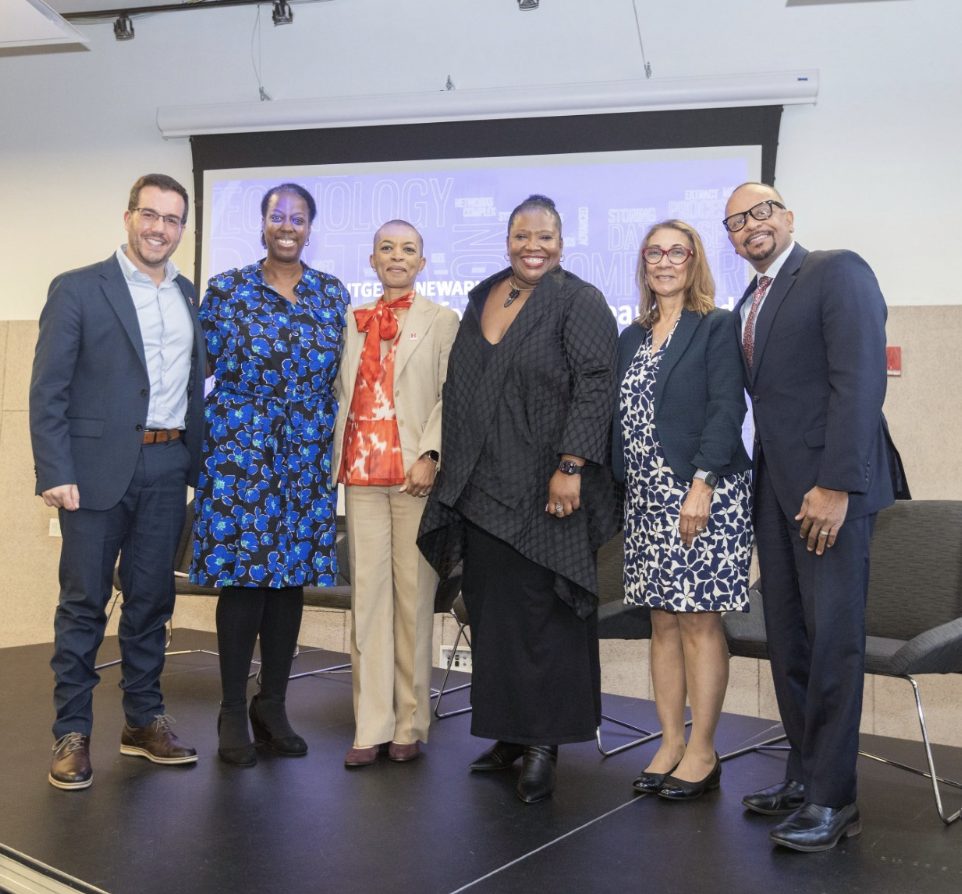Data and Software Drivers in Computational Sensing: Key Takeaways from Dr. Stefan Robila’s Lecture
February 19, 2025
IDRIS In the Media
June 10, 2025Data and Software Drivers in Computational Sensing: Key Takeaways from Dr. Stefan Robila’s Lecture
February 19, 2025
IDRIS In the Media
June 10, 2025IDRIS Officially Launches - A Doctoral Student's Perspective
Author: Nguyen Pham
The official launch of the Institute of Data Research and Innovation Science (IDRIS), an ambitious new initiative committed to reimagining how data, artificial intelligence and emerging technologies can serve communities ethically and responsibly.
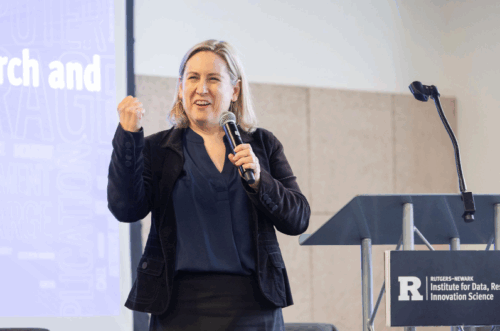
During the launch event, Dr. W. Evan Johnson opened by acknowledging the vital contributions of Dr. Fay Cobb Payton, executive director of IDRIS, in building the foundation of IDRIS, highlighting the collaborative spirit that defines the institute’s mission. Among the institute’s first initiatives is a Lives in Translation (LiT) & IDRIS AI Faculty Workshop, in cooperation with Dr. Jennifer Austin, Stephanie Rodriguez and Dr. Jason Cortes, aimed at promoting the responsible use of AI in academic and professional settings. IDRIS will also engage with entrepreneurial pathways through its participation in the I-Corps program and co-sponsoring the Novus workshop at Rutgers University - Newark.
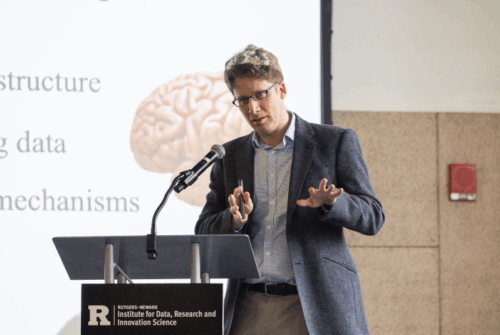
IDRIS’ new website was also introduced, designed with a strong focus on user experience, as a platform not to promote the institute itself but to showcase and amplify the work of others — researchers, students, and community partners alike.

The launch event’s evening panel discussion, moderated by Dr. Anthony Mayo and Dr. Maria Soto-Greene and consisting of Drs. Stacy Hobson, Sherri-Ann P. Butterfield, and Alex Gimenez-Santana explored the ethical challenges and societal stakes of data and AI development. Panelists emphasized that, like in fields like criminal justice, data should never dictate outcomes; rather, it must serve as the beginning of conversations with communities who are often excluded from decisions that impact them. True public safety, they argued, emerges when communities are active participants, sharing both power and responsibility. A recurring theme was the urgent need to democratize data access and creation. Currently, the organizations with the greatest financial resources are best positioned to collect and leverage data for AI innovations, raising concerns about a concentration of power and a narrowing of perspectives. Without wider participation, biases embedded in non-representative datasets can perpetuate inequality and exclude the needs and voices of marginalized groups.
Panelists stressed that the community itself holds critical knowledge and agency, and that collaboration must be mutual — not an extraction of value, but a pursuit of shared benefit. The importance of breaking down silos between academia and communities was highlighted as essential for generating solutions that reflect real-world needs and experiences. Discussion also touched on broader issues of AI safety, facial recognition technology and emerging tools which must be addressed proactive engagement, design and implementation. Civil society, they noted, has a responsibility to ask the hard questions about who benefits from AI development and to ensure that technology does not heighten existing disparities.
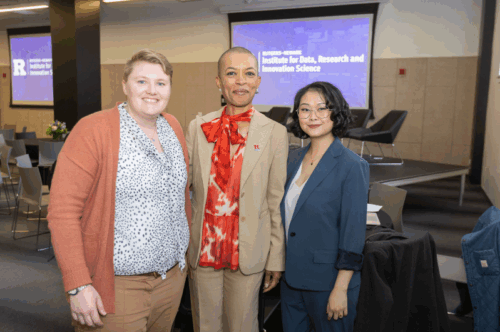
IDRIS, at its core, aims to facilitate these necessary conversations. By bringing together researchers, practitioners, and communities, IDRIS aspires to build a more responsible, ethical, and collaborative future for data and AI/tech innovation. The launch made clear that while we cannot — and should not — halt technological progress, we must shape it thoughtfully, ensuring it uplifts rather than marginalizes. Through initiatives like IDRIS, the hope is to turn these ideals into lasting, impactful practices.
